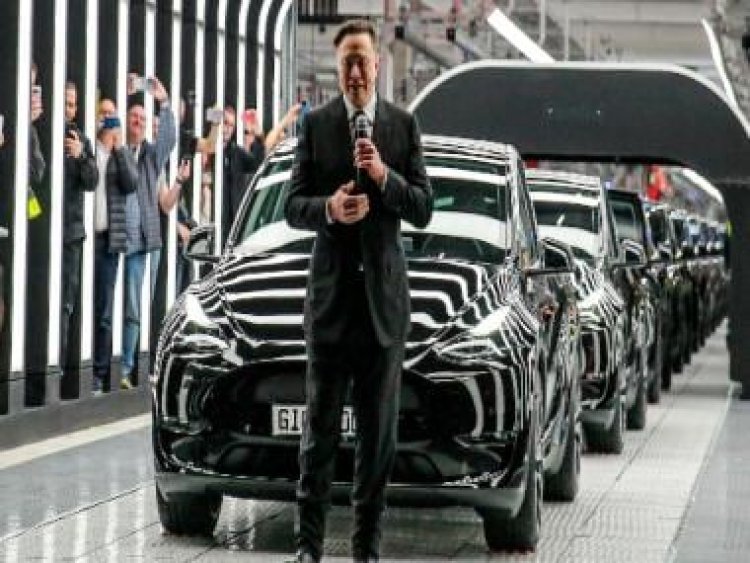Tesla trying to undercut EV prices of competitors in, to rely on record profits that it has raked in so far
Tesla trying to undercut EV prices of competitors in, to rely on record profits that it has raked in so far

Compared to its international competitors, Tesla makes more money from each vehicle it sells. Elon Musk now plans on using this higher profitability as a weapon in the EV pricing war that Tesla initiated.
A review of industry statistics reveals that Tesla, which saw some of the largest financial losses in the car industry in the past before it became profitable, has established a commanding lead over most of its main competitors in terms of profit per vehicle.
According to the estimate, Tesla made $15,653 in gross profit per car in the third quarter of 2022, more than double what Volkswagen, Toyota, and Ford made in a comparable period.
For most of the last year, Tesla aggressively raised the pricing of some of its most well-liked products, such as the Model Y SUV. Due to shortages of semiconductors and other resources, the auto industry was able to focus on higher-margin models and record substantial profits even while sales quantities declined. To counter that, Tesla went on a price-slashing spree all over the world and has slashed prices for certain models by as much as 24 per cent.
Established automakers like GM have been pursuing profit-over-volume tactics since the 2008 financial crisis, and they increased their reliance on them during the epidemic. Tesla’s choice to change direction and use its production-cost advantage on price decreases now confronts those policies.
Tesla has made significant investments in innovative manufacturing techniques to reduce production costs, such as the utilisation of big castings to replace tiny metal parts. To increase economies of scale, Tesla standardised car designs and brought other components of its supply chain in-house.
In the car business, there is a long history of using production-cost advantages to finance price reductions.
Henry Ford lowered the price of his Model T as his ingenious mass-production technique took off in the early 20th century. Similarly, Toyota leveraged the cost advantage given by its lean production strategy in the 1980s and 1990s to provide amenities at cost, as Detroit manufacturers found difficult to compete with. Toyota is currently reevaluating its approach in response to Tesla’s push.
In the year 2022, demand for electric vehicles grew faster than the world and American markets combined. Automakers felt empowered to raise EV costs as a result. In 2022, Ford increased the cost of its electrified F-150 truck by 40 per cent.
Analysts caution that there may soon be more manufacturing capacity than demand in the global EV industry.
According to industry analyst Warren Browne, by 2026, North American EV demand would reach a level of around 2.8 million vehicles annually. However, he added, North American EV plants would be able to assemble more than 4.5 million vehicles, which would result in a capacity utilisation rate of slightly under 60 per cent.
The biggest EV market in the world is experiencing a market share battle in China as a result of the elimination of central government subsidies.
According to Bill Russo of Automobility, a Shanghai-based industry consultant, “Tesla has used the nuclear option to bully the weaker, narrow margin companies off the table” in China. Big pie, fewer servings, more food for the surviving people
Tesla’s pricing increases have aided startups like China’s Xpeng. Price reductions are now being made by Xpeng in China, but with less financial room than Tesla. Data from the firm shows that Xpeng had a net loss of $11,735 per car and a gross profit of $4,565 in the third quarter.
After we make our cars ever more inexpensive, we expect that more people will have access to smart automobiles, according to a statement from Xpeng.
Vinfast, a Vietnamese electric vehicle company, announced on Thursday that it will counter Tesla with price reductions.
After Beijing cut off EV subsidies, the market leader in China for EVs, BYD, announced price rises beginning January 1. BYD has not yet reacted to Tesla’s most recent price reductions in China. However, BYD has more space in a pricing battle than VW, Toyota, or GM because to its gross margins of $5,456 per vehicle.
Read all the Latest News, Trending News, Cricket News, Bollywood News,
India News and Entertainment News here. Follow us on Facebook, Twitter and Instagram.
What's Your Reaction?



























































